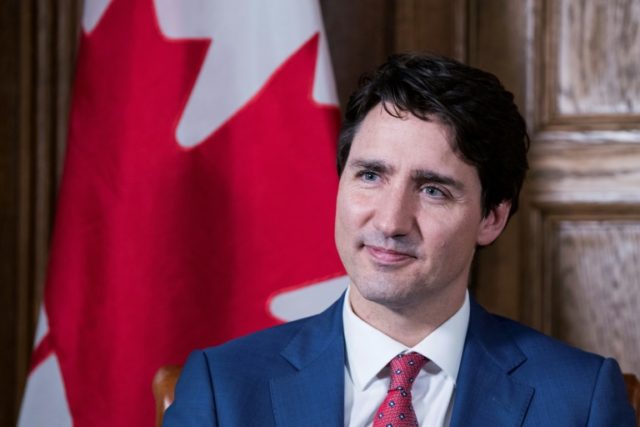Canadians have decided to borrow a page from their U.S. neighbors by embracing a new economic nationalist ethos.
“Scores of shoppers and travellers are mounting strikes against America’s pocketbook by boycotting U.S. goods and trips to the States. On Twitter, hashtags including #BuyCanadian, #BoycottUSProducts and #BoycottUSA are spreading tips on using purchasing power to defend Canada’s honour,” CTV reports.
Canada’s Prime Minister, Justin Trudeau, got in an angry spat with President Trump this week after he criticized the U.S. insistence on applying steel and aluminum tariffs to his country. The U.S. government says a healthy metals industry is important for national security reasons, pointing out that relying on imports–regardless of where they originate–would make the U.S. vulnerable. Trudeau has falsely said many times that this is equivalent to treating Canada as a threat to the U.S.
From CTV:
In response, one Ottawa man proudly tweeted a photo of a cart of “Trump free” groceries on Sunday. Others are refusing to buy Kentucky bourbon, California wine and Florida oranges, and ignoring major U.S. brands such as Starbucks, Walmart, and McDonalds.
Trudeau appeared to acknowledge the swell of support at an event for supply-managed farmers near Parliament Hill on Tuesday.
“There’s a bit of a patriotic boost going on these past few days,” he said to laughs from a table of stakeholders gathered under a tent.
Unfortunately for the newly patriotic Canadians, it will not be easy for them to transform themselves into a nation that avoids American products.
Reuters reports:
But while Canadians will fight to a polite death for the right to consume homegrown beef, beer and maple syrup over what they view as inferior American alternatives, any move to mount a broad boycott could be tough going in a country that reveres U.S. popular culture and consumer goods over all others.
“To suggest Canadians are going to stop drinking Coke and Pepsi is a bit of a stretch, given we are so enmeshed in U.S. consumer culture. A bottom line impact is not likely to occur,” said pollster Nik Nanos.
Even still, a lot of the products that Canadians buy are American only in name. The “American” shoes and clothes they wear, from Nike to Levis, tend to be made outside of the U.S., for example. A well-directed Canadian boycott would have to be much more precisely targeted at American goods actually made in the U.S. by Americans.
Unsurprisingly, Canada’s globalist business class thinks this is all a terrible idea.
Reuters again:
While a consumer boycott is a natural first response, it is the wrong decision, said Gabe Batstone, co-chair of the Canadian American Business Council.
“Historically global peace and prosperity have flourished when trade has flourished, so fighting U.S. industrial protectionism with Canadian consumer protectionism makes good copy and little sense,” Batstone said in an email. “Cutting off your nose to spite your face is rarely a great strategy.”

COMMENTS
Please let us know if you're having issues with commenting.